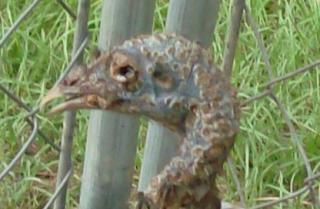- Thread starter
- #11
the only thing that kept him from pecking his own legs was bandages
today i see scabs and warts on his head
i wonder could it be pox ill try to get a picture and post it if i can
today i see scabs and warts on his head
i wonder could it be pox ill try to get a picture and post it if i can


